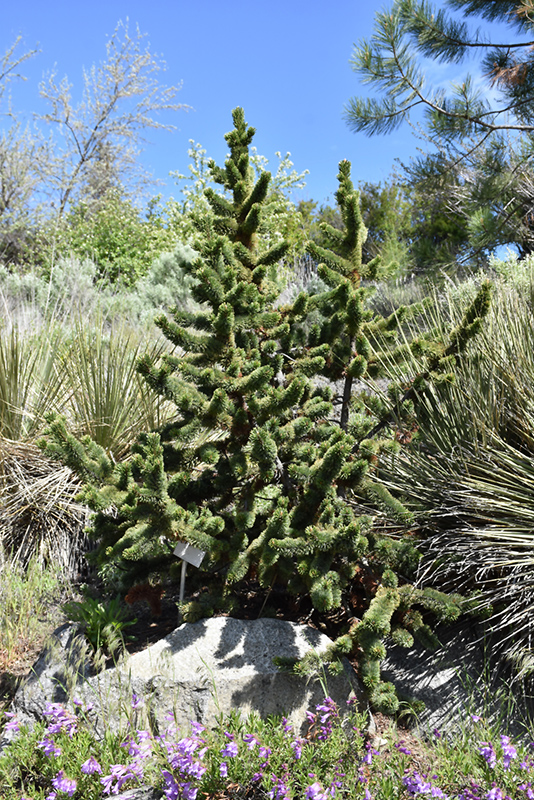Height: 20 feet
Spread: 25 feet
Sunlight:
![]()
Hardiness Zone: 4a
Other Names: Hickory Pine
Description:
An interesting small evergreen tree with stark, stout branches and short needles; rather open appearance, a character tree, good for accent use in the garden; extremely long lived and slow growing, some living specimens are over 4,500 years old
Ornamental Features
Bristlecone Pine is primarily valued in the landscape for its ornamental upright and spreading habit of growth. It has forest green evergreen foliage. The needles remain forest green throughout the winter.
Landscape Attributes
Bristlecone Pine is an evergreen tree with a strong central leader and an upright spreading habit of growth. Its relatively coarse texture can be used to stand it apart from other landscape plants with finer foliage.
This is a relatively low maintenance tree. When pruning is necessary, it is recommended to only trim back the new growth of the current season, other than to remove any dieback. It has no significant negative characteristics.
Bristlecone Pine is recommended for the following landscape applications;
- Accent
- General Garden Use
Planting & Growing
Bristlecone Pine will grow to be about 20 feet tall at maturity, with a spread of 25 feet. It has a low canopy with a typical clearance of 1 foot from the ground, and is suitable for planting under power lines. It grows at a slow rate, and under ideal conditions can be expected to live to a ripe old age of 300 years or more; think of this as a heritage tree for future generations!
This tree should only be grown in full sunlight. It prefers dry to average moisture levels with very well-drained soil, and will often die in standing water. It is considered to be drought-tolerant, and thus makes an ideal choice for xeriscaping or the moisture-conserving landscape. It is not particular as to soil type or pH. It is quite intolerant of urban pollution, therefore inner city or urban streetside plantings are best avoided. This species is native to parts of North America.







